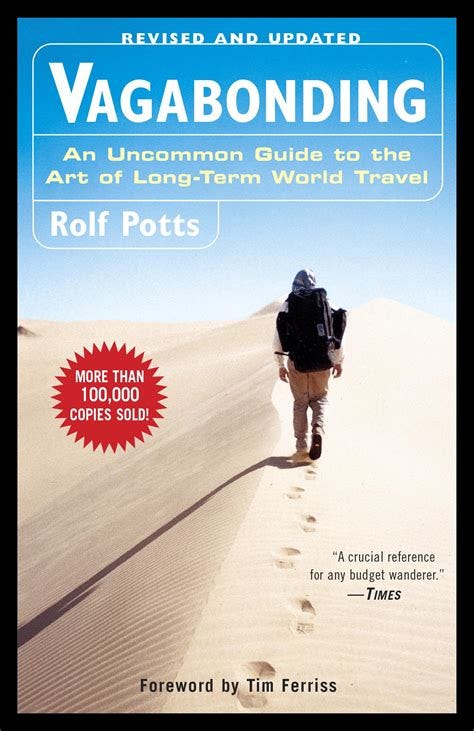Hey friends,
Today, I'm going to Europe for the first time ever.
Solo. With just one big backpack.
This feels like a dream.
I’m ecstatic, nervous, and ready to begin a new chapter of my life.
I'm writing this as I sit down for a quick 10 hour layover in Chicago on my way to Sevilla, Spain.
In the spirit of travel, I wanted to share a few insights from the book Vagabonding.
Vagabonding
You might be wondering, what is Vagabonding?
Vagabonding is leaving the “ordered” world to cheaply travel for an extended period of time.
It involves bringing just a small bag and not micromanaging every detail of your trip.
Vagabonding is a guide that helps you enrich your travels with uncertainty and adventure. Here are 4 of my favorite takeaways:
1. Don't plan much: write your own adventure and travel slow.
There’s really only 2 things you need to do when planning your trip:
Book a one-way flight to your destination
Book a hostel for 3-4 days
Do some research on the area and Visa entry requirements for your initial destination, but don't plan much. This is key. As a chronic overthinker, this is something that'll take getting used to.
It's pretty easy to find last-minute buses, trains, and hostels. So go and explore the city, meet people, and follow your curiosity.
Use any inspiration you have to travel to places. I want to go to Spain and Italy for language, culture, food, music, the opera, and more.
One key to all of this: you have to remind yourself (as I am right now) that you will never be able to see everything, so enjoy every city while it lasts. Rolf Potts, the author and a travel veteran himself, advises us to not try and "see Europe" but to see a few countries and explore them in depth.
For me, that's Spain, Italy, and wherever else the adventure takes me.
My favorite expression from Potts is "walk until your day gets interesting."
Beyond that, it’s also important to strike a balance between knowing what's out there and being optimistically ignorant.
"The gift of the information age, after all, is knowing your options—not your destiny—and those who plan their travels with the idea of eliminating all uncertainty and unpredictability are missing out on the whole point of leaving home in the first place."
It’s rare to be in the dark on things nowadays, but organically exploring the world with a little bit of ignorance sounds incredible.
2. Bring nothing.
Just kidding. Bring some essentials, but keep in mind that you can probably buy most of it overseas (for maybe even cheaper too).
Last night, it took me 2 hours to pack my backpack. No joke, while packing my bag I had to keep asking myself, “will I actually need this?”
Because I'm accustomed to bringing stuff "just in case," packing already taught me a lot about practicality, minimalism, and simplicity.
But do you know what the best part of bringing not much stuff is?
Buying clothes or toiletries is an adventure in and of itself in a foreign country. I'm stoked to get a haircut or go to a store and speak Spanish, observing all of the differences in culture and consumerism.
3. You can afford to travel.
Potts traveled for 2 years through Asia, Eastern Europe, and the Middle East while spending under $1,000 per month.
While this book was published a while ago and before inflation, travel is a lot cheaper than you think.
Once you get into the mindset of saving money for experiences, it's easy to cook at home instead of buying another hoodie, knowing that those $30 could fund another day or two of your travels.
The strong US currency and geoarbitrage is also pretty damn nice.
For reference, I booked a one-way flight to Sevilla for under $500 (and I get to stop in Portugal on the way).
Instead of staying in luxury hotels and eating in fancy restaurants, Potts advises us to live like locals:
Volunteer
Stay in hostels
Take buses and trains
Find a family to stay with
Of course, there's nothing wrong with splurging on something "nice" from time to time.
But it's this simplicity that saves you money, buys you time, creates an adventure, and forces you to interact with locals.
4. Look past mainstream news: the world isn't so dangerous.
This might be my favorite quote from the entire book:
“Just as day-to-day American life is not characterized by car chases, gun battles, and unusually large-breasted women, life overseas is not populated by sinister or melodramatic stereotypes. Rather, it is full of people with values not that much different than your own.”
As humans, we’re wired to look for the negatives. Of course there’s bad people out there, but most of them aren't terrorists.
Think about it: a European who sees the countless shootings in America probably thinks the same things we do about the Middle East.
Do some research on an area and check the Travel Advisories, but understand that the news falsely amplifies your fears.
Quick Recap
4 Keys to Vagabonding:
Plan little and travel slow
Bring the bare essentials
You can afford to travel
Look past the news
The most important part is enjoying the journey and every moment along the way.
This post is mostly just me giving advice to my self, but I hope you liked it! If you’d like to grab a copy of the book for yourself, you can get it on Amazon here.
Crazy to say, but this marks the last post I’ll write from the United States (for a while).
Thanks for reading,
- BB





